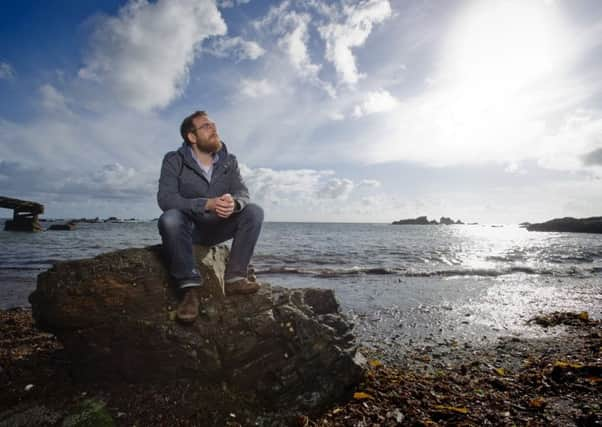Music review: Hidden Door


Hidden Door Festival ***
Leith Theatre, Edinburgh
With only two days to go before Hidden Door vacated the building, then, a final Saturday night blow-out was on the cards in the main hall.
Yet one problem saw things start far more slowly than they should have in a building this suited to sonic enjoyment – for the first two acts appearing the sound was frankly awful, and it made it difficult for two impressive young Scottish artists to show what they can do. Monkoora appeared first, the solo performance guise of Glasgow-based singer, electronic composer and visual artist Julie Crawford, whose CV explains her distinctive style. She appeared in a flowing, multi-coloured dress, wearing what looked like a homemade Venetian mask, and played music which was just as unique.
Advertisement
Hide AdAdvertisement
Hide AdIn their recorded format, Crawford’s songs are lustrous, expansive voyages which fuse the wayward composition and fluttering, transportive vocals of Kate Bush with a grimy electro edge reminiscent of Goldfrapp. Her work is well worth seeking out, which the audience would sadly never have known from this show; Crawford’s voice was high in the mix against a weak sonic backing which didn’t allow her innovative arrangements to break through and only served to emphasise that her singing voice doesn’t appear to be particularly rigorously schooled. Only the light, bouncing lyrical plea for mutual acceptance BocxWurld brought some sense of her true potential at the end of the set.
None of the above seemed to be Crawford’s fault, for the same issues were in evidence during Callum Easter’s set, except with the added disappointment that the two female backing singers tasked with leavening his gruff Edinburgh vocal were all but inaudible. Again this was a shame, because Easter – a former member of the Stagger Rats, now produced by Young Fathers’ manager – is an idiosyncratic talent, a different kind of torch singer whose voice suggests too much whisky and cigarettes.
If it’s possible to imagine the middle ground between the masculine, cinematic ambience of the Last Shadow Puppets, the DIY compositional bloody-mindedness of The Fall and the electronic double act (the smartly-dressed Easter had someone else syncing all his music from a laptop) of Sleaford Mods, then this is the space occupied by this Scottish Album of the Year-longlisted artist. But again – and even in the face of his mighty signature track, the dark days electro-gospel hymn Feeling’s Gone – the clear lack of sonic power here may not, sadly, have inspired further exploration.
In case this review becomes an extended moan about sound quality, the next artist on the bill was afforded every inch of audible power both her set and this hall deserved. Elizabeth Bernholz is a Brighton-based electronic composer and sound artist who records under the name Gazelle Twin, and her set was a sinister piece of sonic theatre which chimed perfectly with the surroundings. Kingdom Come is a performance for two vocalists (one of them Bernholz’s husband Jez) with a cinematic backdrop created by Chris Turner and Tash Tung, in which both performers raced through riot-filled streets and deserted underground car parks, transmogrifying from hoodie-wearing youths to suited city workers while a dense electronic score rumbled. Visually and sonically, it was a zeitgeist-permeated piece which was hard not to be transfixed, disturbed and occasionally darkly amused by.
Whether they qualified as a proper Saturday night party band or not, homecoming collective (they were formed in Edinburgh but are based in Brighton) Hidden Orchestra made a beautiful noise – and yes, the sound in the venue was again up to the job of accommodating them. By this point the hall must have been nearing its capacity of 1,000, and the fact the group had two drummers lent a rhythmic power which allowed for outbreaks of dancing. Yet bandleader Joe Acheson’s group, whose third album Dawn Chorus is due this month, otherwise combined strings and electronics in a fashion which was sophisticated and soothing, a sound which would work in a classical or a club environment. They lent further proof that this grand old theatre remains fit for purpose.